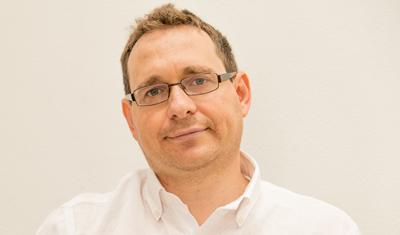Dr. Paolo Spada PhD, Masters, BA
Lecturer in Comparative Politics and Methodology

Dr. Paolo Spada is a Lecturer in Comparative Politics within Politics at the University of Southampton.
My Research on Collective Intelligence explores how to combine the expertise of different people to achieve better decision making.
My work investigates how and when these processes reshape political representation, promote accountability, and affect the planning and delivery of public policies. Specific questions that I address include: what are some of the most promising innovations? What drives such innovations: why do some but not all political actors champion them? How do these new participatory spaces transform citizen engagement? How do participatory processes impact public policies and pre-existing political structures? When do local conditions promote/hinder the adoption and impact of democratic innovations? What designs respond better to specific local conditions? How can we better leverage collective intelligence to generate better decisions? How can we scale up deliberation online and offline? How can we integrate multiple participatory processes in a coherent system?
I began my work during my PhD in political science at Yale University when I conducted fieldwork in Brazil studying participatory budgeting, at the same time I completed my PhD in Economics. This dual training motivates me to combine multiple research methodologies rooted in different traditions. During my Postdoc at the Ash Centre For Democratic Governance and Innovation (Harvard Kennedy School) I got interested in Civic Technology, interest that was further developed in large grant based research projects in Canada (Participedia), UK (Democracy Matters) and Portugal (EMPATIA).
My fieldwork has focused on various cases in Brazil (Participatory Budgeting), the US (e.g., Deliberative Polls in New Haven, Participatory Budgeting in NYC), Italy (Democratic Party's Deliberative Referendum 2012, Milan PB 2017), Cameroon (Participatory Budgeting in Yaoundé 2012), Canada (Citizens' Assembly in Vancouver 2014-2015), the UK (Sheffield and Southampton Citizens' Assembly 2015-2016), Germany (Wuppertal PB 2017), Portugal (Lisbon Participatory System 2017) and the Czech Republic (Ricany PB 2017).
My most recent research focuses on participatory systems that aim at combining multiple participatory processes together, civic technology, online discussion platforms, and gamification. I was involved in the construction of the EMPATIA platform (the first digital platform designed for participatory systems), I have been supporting the update of the DELIBERATORIUM (an argument mapping software designed to allow high quality deliberation in large groups), and I have contributed to the development of EMPAVILLE (a role playing game that explores the complexities of participatory systems).
I am a member of the core development team of the Participedia Project, of the research unit of the Participatory Budgeting Project, a former member of the Digital Engagement Evaluation Team at the World Bank, a member of Democracy Matters, the consortium of academic and practitioners that promoted the adoption of Citizens' Assemblies in the UK, and I am one of the founders of the School of Collective Intelligence in Marocco.
Qualifications
Phd in Political Science (Yale University), Phd in Economics (Bologna University), Master in Economics (Northwestern University), BA in Economics (Bocconi University)